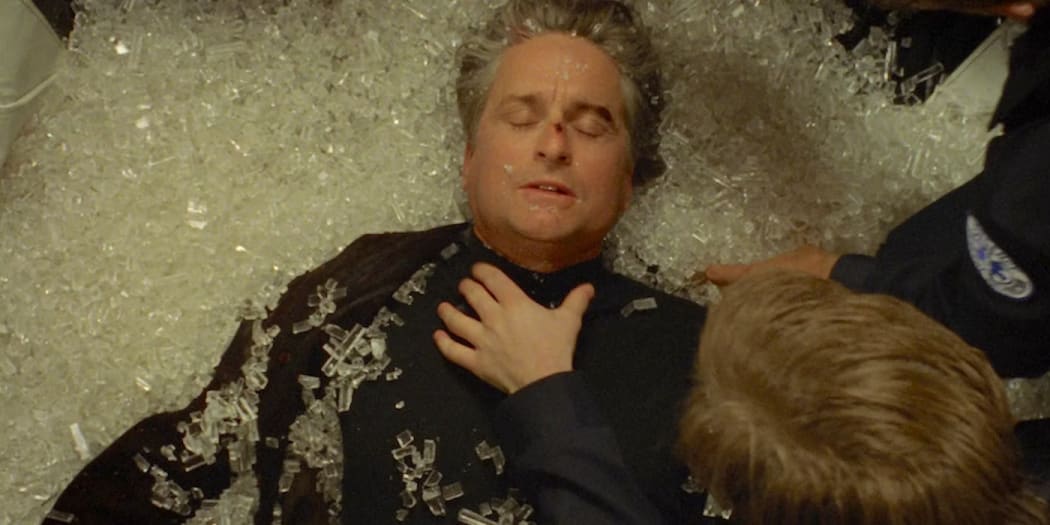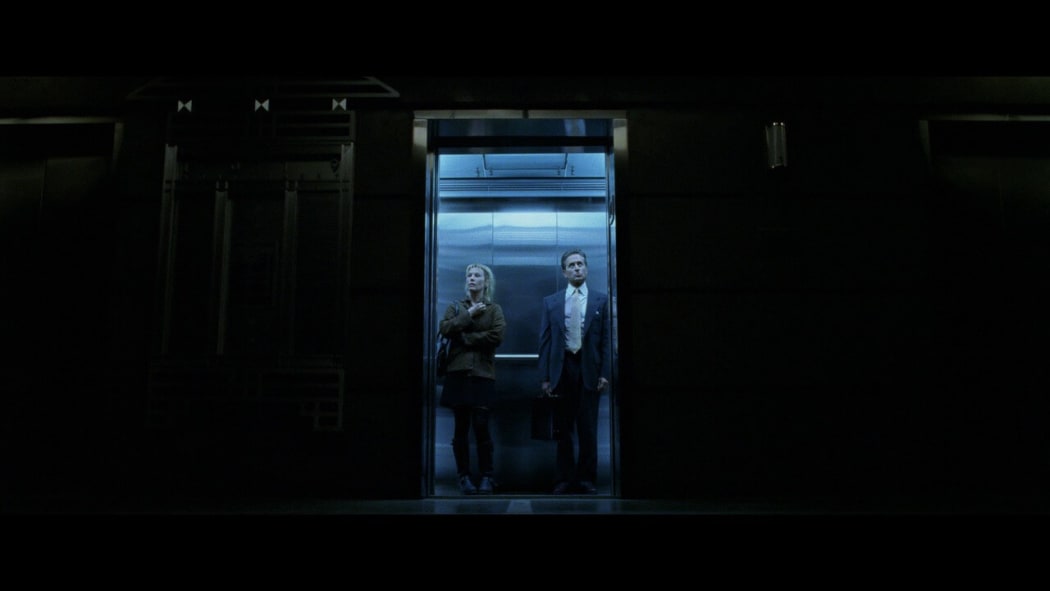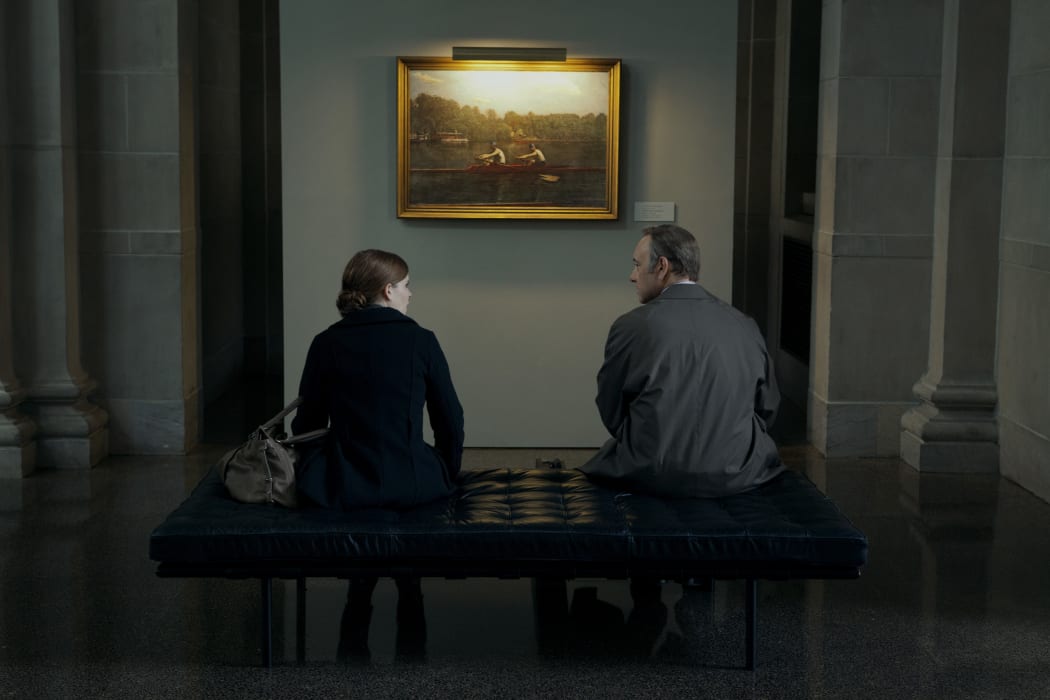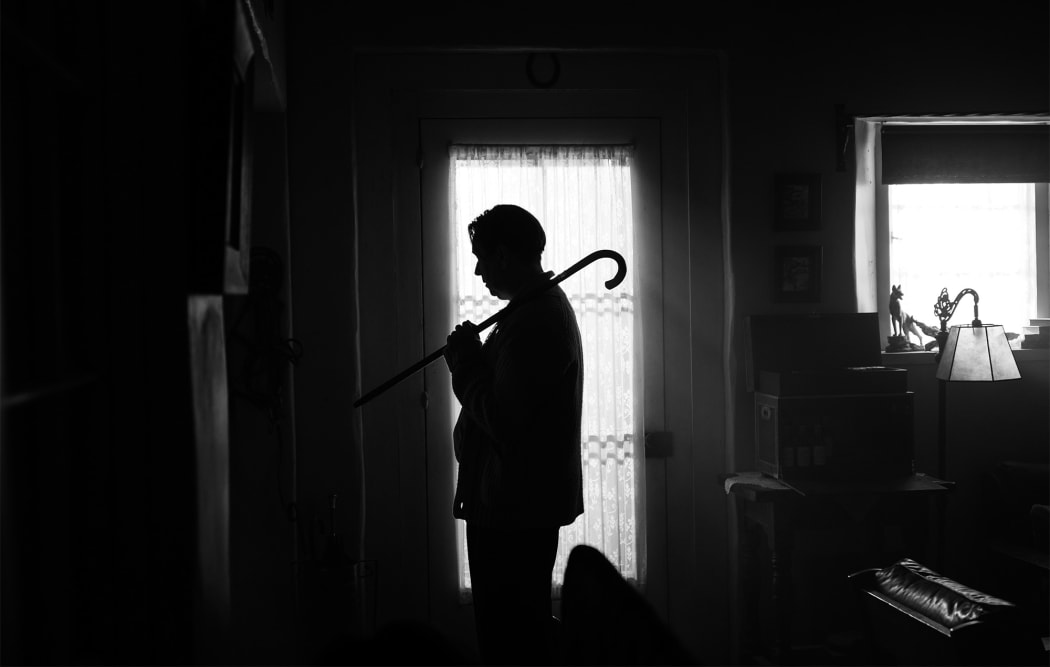His latest film, The Killer, is streaming on Netflix, so Dan Slevin looks at three older David Fincher works to see if they provide clues to help us appreciate him.

Photo: Polygram Filmed Entertainment
Despite a feature film career spanning over 30 years, including the iconic successes of Se7en, Fight Club, Zodiac, and The Social Network, director David Fincher has a very modest take on his own body of work.
He clearly thinks of himself as more of a hardworking craftsman than an artist, and in a recent interview with the Guardian he talked about the unpredictability of his career and how – in his opinion – it resists analysis: “I’m so bad at that. Because a) I don’t care. But b) At the point in time I was making Fight Club, people were saying: ‘How could you?’ And now you make something like The Killer and people go: ‘Why aren’t you doing it like your earlier, more important movies?’ I can’t win.”
His most recent work has been funded by Netflix, an arrangement that started with his co-creation of their first streaming series House of Cards. It makes funding what he wants to make much easier but – in this reviewer’s opinion – harder for us to take him seriously as a big name filmmaker.
His latest, The Killer, has had a limited run in cinemas unlike Scorsese’s The Killers of the Flower Moon, which was funded by Apple but will play at the movies until the box office runs out before heading online.
I was curious to see whether Fincher’s body of work could still be seen as that of an auteur or just, as he likes to think of it, a high quality gun for hire.
Nowadays we think of auteurs as filmmakers who write and direct and have a clear authorial stamp on their work: Tarantino, Reichardt, Wes Anderson. But the original definition was a way to understand and appreciate directors just like Fincher.
Filmmakers who were offered or assigned scripts by studios and who – on the surface – looked to have no thematic or aesthetic throughline for their career.
The cineastes of the French periodical Cahiers du Cinéma championed Hitchcock, Hawks and Ford, identifying their trademarks and recognising their artistic contribution – their authorship.
Like those directors, Fincher doesn’t write scripts so I wondered whether a closer look at three of his non-iconic works offer us any clues as to whether we can consider him an auteur or not.
The Game (1997)

Photo: Polygram Filmed Entertainment
After the smash hit of Se7en in 1995 restored his reputation following the failure of Alien³ in 1992, Fincher was offered the high concept thriller script The Game by John Brancato and Michael Ferris.
In it, a wealthy San Francisco investment banker (Michael Douglas) is given a voucher for an unusual piece of recreation by his brother (Sean Penn). He doesn’t realise that Consumer Recreation Services – the game’s organisers – will upend his entire life with a series of unpredictable interventions that will force him to confront the possibility of life without any of his money or friends or even life itself.
As the stakes get raised ever higher, Douglas realises that nothing he sees can be taken at face value. Everyone is potentially in on the game and the only rational response is to give in to paranoia.
This is a consistent theme in Fincher’s work – you can’t take the world at face value.
Sometimes it is because the central character is self-deluded. Douglas’s Van Orton has far too high an opinion of himself, insulated by money and power, and its only when he realises this that he is able to turn the tables. At least that’s what he thinks he is doing – in fact, he is never in control of The Game.
Visually, The Game is a great example of Fincher’s painstaking process and attention to detail, and his precise use of camera in the service of the story and character rather than showy camera moves – long takes, Steadicam or hand-held. The frame is never out of Fincher’s control.
House of Cards (2013)

Photo: Melinda Sue Gordon
By taking on directing duties for the first two episodes of House of Cards, Netflix’s adaptation of the 1980s British political satire, Fincher got to set the visual tone for the rest of the six seasons and earned himself an Executive Producer credit throughout.
Trying to set aside the way the world feels now about star Kevin Spacey (Congressman Frank Underwood), I rewatched the pilot for the first time in ten years and can confirm that Fincher fingerprints are all over it.
Created and written by Beau Willimon, House of Cards is a great environment for Fincher’s preoccupations. Not just the world of power and intrigue where the ebb and flow of professional manipulation drives a plot about ambition, but the fourth-wall breaking device in which Spacey’s Underwood “confides” with the audience is another example of a self-deluded, over-confident person revealing their own weaknesses to us while thinking they are doing the opposite.
The whole first episode is about Underwood’s cocky assumption that he will become Secretary of State under a new president that he helped get elected and then discovering that he doesn’t have the support that he thought he had.
The rest of the five seasons in which Frank Underwood is the central character are examples of his overreach – Murder! Corruption! – coming back to haunt him and threaten his tentative hold on power.
Mank (2020)

Photo: Gisele Schmidt/NETFLIX
Mank is a bit of an outlier in Fincher’s career. It’s the most personal film he has ever made as it comes from a script by his late father, Jack, that he spent many years trying to get funded. (It was supposed to be the follow-up to The Game in 1997.)
It’s also an outlier aesthetically – black and white cinematography providing the brooding contrast between light and dark rather than the muted earth tones and sharp highlights of earlier films.
Because the script is about the creation of Orson Welles’ masterpiece Citizen Kane and the fight over credit for it with the screenwriter Herman Mankiewicz (Gary Oldman), the visuals draw attention to themselves more often than usual as they often call-out or reference shots created by original Kane cinematographer Gregg Toland.
The film also self-consciously attempts to recreate the cinema going experience of the time that Kane was made – the sound design features a boomy mono presence for dialogue as if you were in a huge auditorium, the credits are jokey and there’s a half-hearted attempt to pretend you are watching a 35mm film with fake reel change markers sprinkled throughout.
But the aspect ratio is 2.20:1, a format that was unavailable in the 1940s and I can only think that was chosen because the normally perfectionist Fincher wasn’t confident filling the smaller squarer 1.37:1 frame. That’s probably a harsher judgement than it should be as Fincher never seems like a director who lacks confidence.
Regardless, it grated on me, that failure to completely follow through on its own gag.
Thematically, though, it is a Fincher film: deeply cynical about power and those who have it. From the movie moguls like Mayer, Selznick and Thalberg to William Randolph Hearst himself, the target of Mankiewicz’s revealing script, power is mysteriously held and thoughtlessly wielded.
Mank believes that his association with the powerful actually provides him with some of his own but he’s perpetually thwarted without ever quite realising it.
https://youtu.be/nsKdR05ZsGE?si=8qHj4uCFiPEmFeq8
Mank and House of Cards are still streaming on Netflix. The Game can be rented from Apple.
Fincher’s new film, The Killer, was reviewed by Simon Morris on At the Movies and is also available to stream on Netflix.

